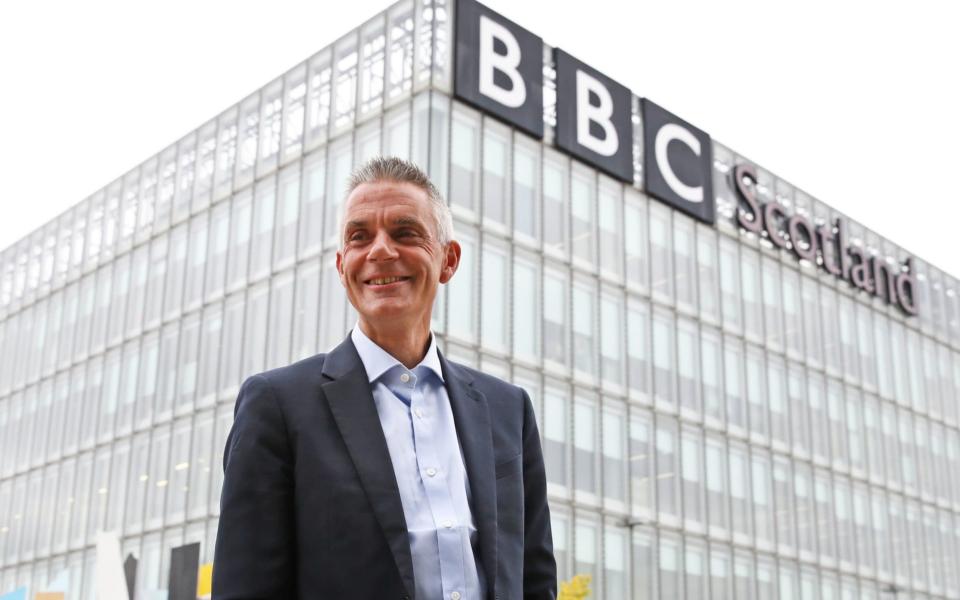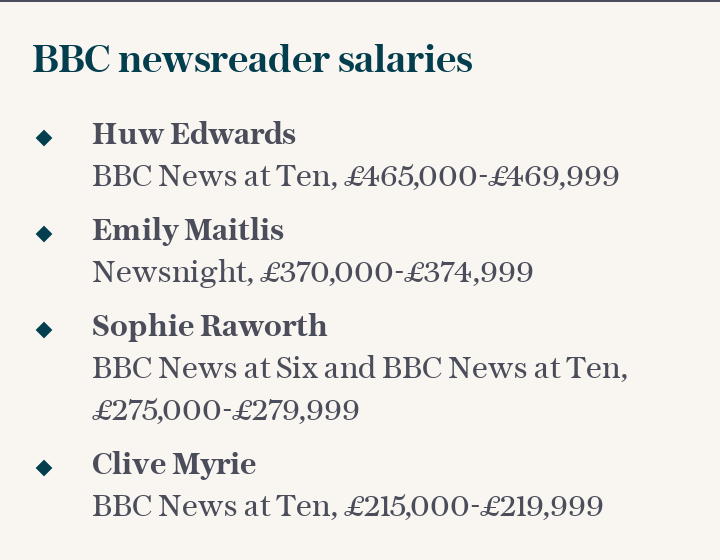BBC stars made to declare outside earnings as part of crackdown on 'bias'

BBC stars will be forced to disclose outside earnings on a public database as part of a crackdown on alleged bias within the corporation.
Tim Davie, the new director general, will bring in a Parliament-style register for employees, following criticism of stars including Fiona Bruce and Naga Munchetty for moonlighting.
He has expressed concern that presenters and journalists risk questions about their impartiality by earning five-figure sums for corporate work.
Mr Davie believes that by forcing presenters and newsreaders to list how much they have been paid by private companies to speak at or host events, they will be “shamed” into turning down such work.
It comes as the BBC published new rules on the use of social media by its employees.
Mr Davie is expected to say impartiality is the "bedrock" of the corporation and must be observed both on and off air.
Writing in Wednesday's Telegraph, Sir Robbie Gibb, a former BBC executive and Downing Street communications chief, said the new rules will "ensure BBC staff are not creating conflicts of interest as they cash in on their profile".
Although BBC staff are currently expected to seek their manager's permission before taking on commercial work, there is no central database of their activities and they do not have to disclose publicly how much they have earned.
Mr Davie believes there is little risk of big-name presenters leaving the corporation as a result of the changes, and regards impartiality as more important than giving in to star names.
One BBC source said: "There will be transparency in the future. We already publish the salaries of top earners and the expenses claims of senior executives, and there will now be information provided to the public as to who has done what."

Munchetty, who earns £190,000 a year, was warned by the BBC last month that she risked a "conflict of interest" after filming a PR video for Aston Martin. She charges up to £10,000 a time for corporate work.
Bruce, who earns £800,000 a year, and business editor Simon Jack, who earns £175,000, were both criticised last year after agreeing to speak at a conference hosted by a firm that had been accused of inadvertently helping criminals to obtain EU passports.
Bruce, whose fee for after-dinner speeches is £25,000, and Jack pulled out of the event.
Meanwhile, North America editor Jon Sopel was criticised for speaking at a corporate event for the tobacco firm Philip Morris. He earns £240,000 from the BBC.
The new rules on the use of social media (see video below) will be published alongside the findings of a review carried out by the former BBC news executive Richard Sambrook.
They will say all employees will be expected to "retain the trust of the audiences we serve, and maintain the reputation and impartiality of the BBC" on and offline.
Staff will be told the guidance is not intended to "prevent the use of social media but to ensure that anyone working for the BBC uses it with appropriate regard for the BBC's values".
It will say: "The reputation for impartiality is a huge benefit to the BBC, as well as an obligation, and should never be seen as a restriction or as an inconvenience or anachronism. In a world of polarised debate and argument, the value of impartiality as a core value is more pronounced that it has ever been.
"The overriding principle of this guidance is that anyone working for the BBC is a representative of the organisation, both offline and also when online, including on social media; the same standards apply to the behaviour and conduct of staff in both circumstances."
A list of social media "dos and don'ts" will be given to staff posting online and will be backed by "enforcement measures" expected to include disciplinary action and sacking in extreme cases.
A BBC source said: "Impartiality is the bedrock of the BBC – it must and will be protected. This isn't about blocking people from posting or using social media, it’s about dealing with the realities of modern, polarised society."

